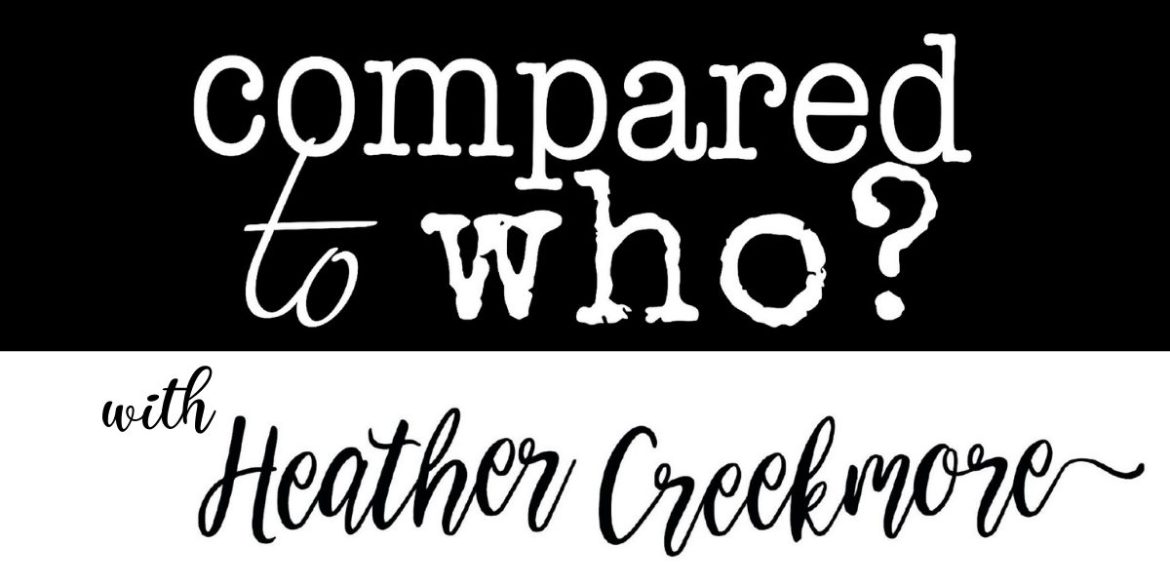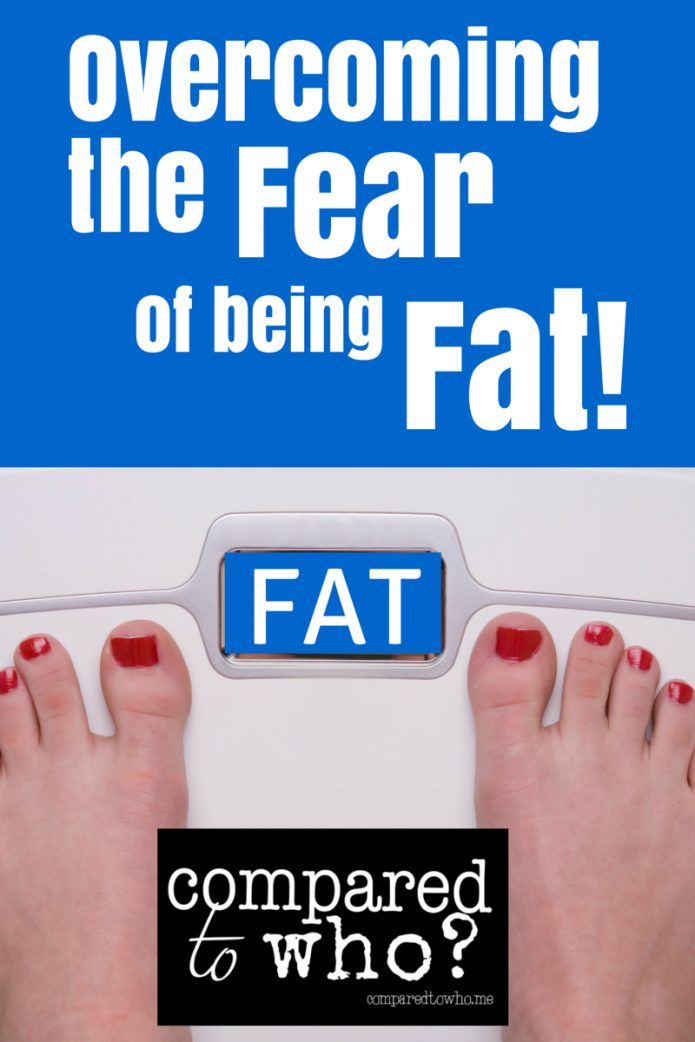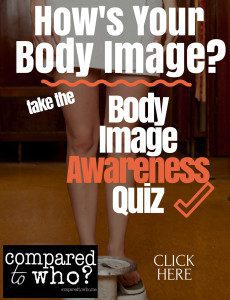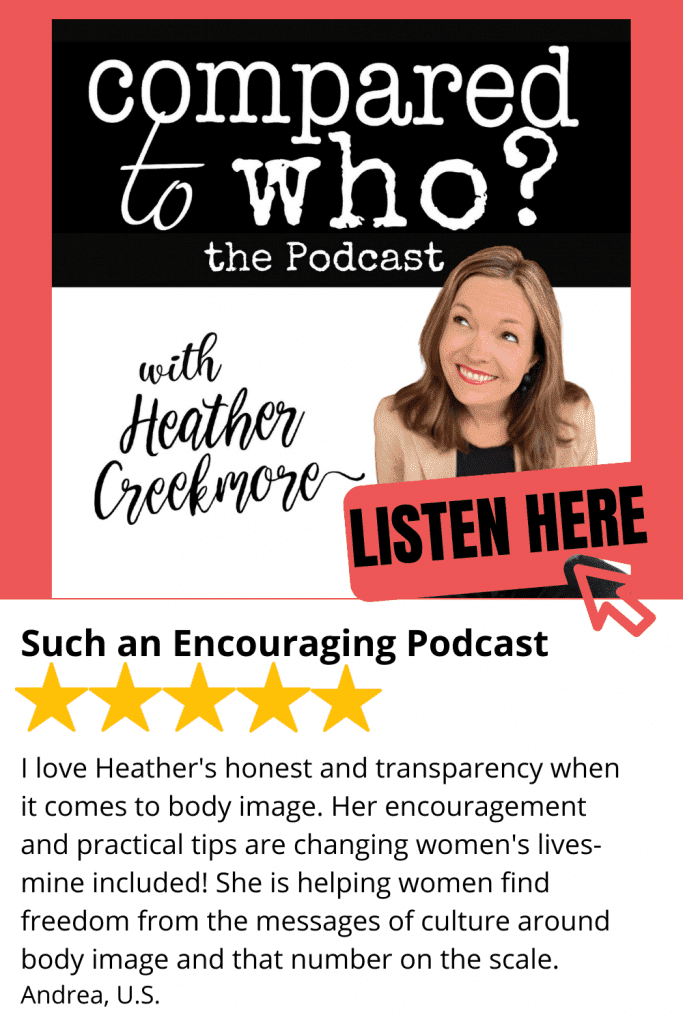The “Questions” series continues with this important question about how to get over the fear of being “fat.” I put fat in quotations because fat is a term that is not only relative, but also way overused by our culture. I understand that this question will resonate with some of my readers, while others may bristle because of that word in the title. Can I encourage you that no matter which end of the spectrum you are on, you may find the answer below useful. God’s love and purpose for our lives doesn’t depend on the number on the scale or the size of our jeans, yet we live in a culture that believes size matters. Is it true? That’s the heart of today’s issue . . .
Dear Heather:
I was a chubby kid growing up. I worked hard through my twenties to lose a lot of weight and have done pretty well at keeping it off. Now, I’m pregnant with my first child. I’m obsessed with every ounce I gain. I know it’s healthy to gain weight during pregnancy, but I’m afraid of being fat again. How do I get over my fear of being fat?
Thanks in advance,
J in Oklahoma
****************
Dear J:
Wow! I can commiserate with your feelings. I spent a lot of years dieting, so pregnancy challenged me also (all four of them). I hated that doctor’s office weigh-in more than anything. It seemed counter-intuitive that gaining weight could be a good thing. The rules I lived by said gaining weight was bad and losing weight was good!
But, as a culture, our fear of fat has spun out of control. Did you know that the number one fear among young people isn’t the zombie apocalypse, losing their parents, or Cancer? Instead, they fear being fat! In fact, 81% of ten year olds say that being fat is their number one fear.
So how do we stop being afraid of being fat? How do we get over our body paranoia? And how do we then teach our children that “fat” should not be their greatest fear?
That’s the heart of your question.
The answer is: We have to get real.
Here are three places to start.
Why Do We Value Thinness?
First: We have to ask ourselves why we value “thinness” so much. What does “thin” really mean?
If “fat” is “bad,” then it logically follows that we are associating a whole lot of “good” into “thin.”
Have you ever stopped and thought about that?
But what is it that we really think thin means?
Do we believe thinness as a symbol of beauty? Do we equate being thin to being successful, being popular or being disciplined? Did being thin mean earning the approval of parents? Did being thin mean getting the attention of a certain boy?
Why do we value “thin” and fear the opposite?
That’s a question we have to work out in our brains, in our hearts, and with God.
Personally, I viewed thinness as a status symbol. In my brain, the “thin” girls always got the guys, the best roles in the school play, the best position on the sports team, and they won all the awards. The “thin” girls also had this freedom that I craved–they didn’t have to watch what they ate. (Or at least that’s what I believed.)
Identifying what we believe about being thin is vital to understanding any associated fears.
Next, identifying who shaped that value can also help us come to a new understanding of where the value derived. Did your dad make negative comments about overweight people? Did your mom only seem happy when she was dieting to get thin? Did a certain boy pay attention to you only after you lost the weight? These behaviors and words have a powerful influence on our belief systems.
Before you read further, stop and ask yourself what “thin” means to you. What do you really believe about your body, your weight, and the way your value associates with your size?
Unveil the Fear
Second: We have to unveil the fear.
My four year old used a dishtowel to cover the action figure he clenched in his fist. “I have something really big under here mom!” He said. “It’s really big . . .you better watch out!”
But, I knew that whatever he had under that dishtowel measured just a little larger than his preschool-sized fist.
Fear operates in this same way. Fear tells us that it’s really big: It’s the giant scary monster that will get us and eat us alive if we don’t run from it. Yet, the truth is, once you take the dishtowel off, you may find that what’s underneath is only as scary as a three-inch Batman action figure.
Hardly terrifying.
This “fear of fat” that plagues young people today is driven by fear.
The fear says that if a dangerous ideal of thinness isn’t meant, then life will be unhappy–dangerous because this issue values a certain kind of thinness that many (thanks to genetics) will never be able to meet. Yet many will die trying. The children who say they are afraid of being fat aren’t actually afraid of mushrooming to a physical size that incapacitates them. Instead, they fear belly pudge, thighs that touch, and jiggly arms because they believe these traits will devalue them.
Their real fear–the fear hidden under something they mistakenly call “being fat” — is that they won’t be accepted, that they won’t be loved, that no one will ever know them in the deep way they desire to be known.
The truth: That fear has nothing to do with their weight, size, or shape. It’s a fear we all fight, no matter what size we wear.
I know very thin women who wrestle to feel like they fit in and have genuine friendships. I also know women who’ll never ever wear a size six (and never have) who enjoy a love-filled, joy-filled, abundant life.
Yet, fear feasts on the lies. Fear uses what we believe about “thin” to make us think “fat” will keep us from happiness. Fear keeps us in these two categories “fat” and “thin” and says that one group has it made while the other struggles.
When we remove the dishtowel we find that it’s all idolatry. It’s body image idolatry to believe that being thin will bring us love, joy, happiness . . .salvation.
It doesn’t. Only Jesus does that.
Fear pretends to save us from the scary monster, while, instead, it keeps us from looking to our Savior.
Apply Truth
Third: We have to apply the truth and change.
I drive to the gym early in the morning two days a week. I’m half asleep and rely on instincts to help me make the three necessary turns to get there.
This is what happens with our brains and our beliefs about our bodies. Our values, our thoughts, and our fears turn to instinct. We can hear the truth and not really be set free because we go back to our default thinking, effortlessly.
To overcome the fear, we must first confess to our savior the ways we’ve replaced the truth with a lie. We must ask him to forgive us for placing such a high value on our bodies, their size and shape. Seeing this line of thinking as sin, confessing it to Jesus, and receiving forgiveness from him affords us the ability to truly turn and begin a shift in our thinking patterns.
Your mindset likely won’t change overnight. But at least now you’ll know how to fight. Tell the fear that it’s lying to you. When you are tempted to value “thin,” remind yourself that salvation doesn’t come from a certain dress size. Repeat to yourself that your Savior loves you right now, just as you look physically and that he won’t love you any more or any less if that weight changes.
Yes, strive to be healthy. Yes, be a good steward of the body God gave you and work appropriately to keep it in good working order. But, this fear of being fat thing–that’s just a cover for body image idolatry to thrive in our culture. It’s just evidence that the false messages of beauty equals happiness now permeate our belief systems. It’s time to feed them the truth.
[mc4wp_form id= “4141”]






I am a healthy weight now, but before having my baby, I was “thin”, now I’m average. I keep obsessing that I need to get back to my original weight and I feel like the thoughts are so intrusive that they are interfering with my motherhood. I had a beautiful baby girl and I’m praying that I can overcome this sin in my life and not pass on my struggle with worrying about weight to her. I’ve struggled with it since I’ve been 16. Please pray for us 🙂
Oh friend, I’m so sorry to hear about your struggle. I hope you know that bodies are meant to change! It is inevitable. Pregnancies, babies or no babies… It’s probably pretty easy for you to tell a 50 year old from a 20 year old… simply because they have differently shaped bodies! Pregnancy, hormones it changes things! Just like your body changed when you “became a woman” during puberty, it’s going to change again and again. It is natural! I know that doesn’t solve your problem, but I hope you can see that as a foundation. As for your struggle, friend, those intrusive thoughts do not have to stay. You get to choose whether or not to believe them. When I coach women we talk about “my truth” versus “God’s truth.” Whose truth is it that you are too big now? Is that “your truth” or is that “God’s truth?” And if it’s your truth (which it is), does it agree with God’s truth? I don’t think so. So, just like any other sin or lie we believe, we have to tell it to go. It is a lie. We don’t have to accept it. We don’t have to agree with it. We agree with God. Praying that you will be able to believe that today. The body image idol is a liar. It tells you that everything will be better when… But, as you said, you struggled with this even when you were stronger. It lies!! It wasn’t better “when.” The only rest, my friend, comes from Jesus. Not from losing weight or going back to your old body size. Praying you can believe this truth today!
Well said! As a body neutrality (yes, read your post on body positivity and found body neutrality a lot more in line with Christian principles) proponent, I have had my fill with responses by “concern trolls.” They are the people in social media who persecute (yes, that’s the right word here) fat people in the guise of ameliorating their health. They make the false assumption that they got fat because they eat 100% highly processed food and laze around on the sofa all day. They believe that what you promote in your website and blog is “glorifying/enabling obesity”
Little did the persecutors know that they too have a fear of becoming fat. Though not mentioned (wish you had in this post), the fear tells them that becoming fat will make them die an early death due to heart problems, cancer, or other maladies or cripple them with diabetes-related amputations. You’re right on with the notion that this fear of becoming fat – or as public health propaganda and wellness programs tell us, obese – is “body image idolatry to believe that being thin will bring us love, joy, happiness, and salvation,” but optimal, true health that dictates a certain body size is also that idolatry.
This post I can agree on. Mind if you write about your thoughts on the obesity panic (childhood obesity included) and workplace/school wellness programs – I’d appreciate that!
Love it. You know, my children aren’t in school so I think I’m out of the loop on the childhood obesity panic. Though I have heard a few whispers of those terms from friends, “We have a childhood obesity problem.” You’re right . . .a lot of it is fear! Thanks for chiming in!
Thank you for this post. It spoke directly to my heart and articulated what the Holy Spirit has been whispering to me lately. I pray for freedom from this bondage and ever-increasing desire to fix my eyes on Jesus, Amen!
Oh, Nia, I’m so glad to hear that. I’m praying for your freedom too! Dear Jesus help this new friend fix her eyes on you! Give her the freedom she desires. Amen!